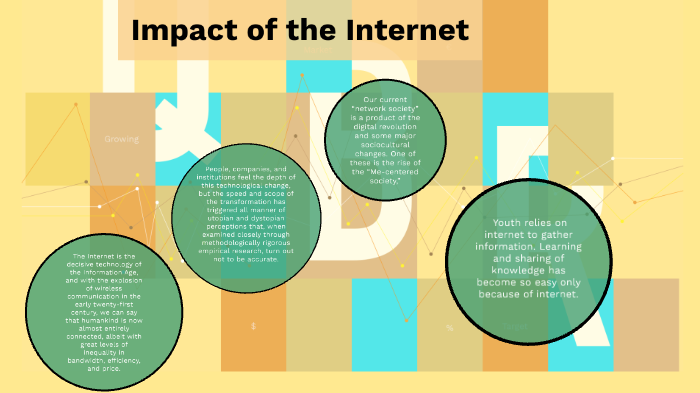The impact of the internet on fiction is profound, reshaping the landscape of storytelling in ways previously unimaginable. This digital age has revolutionized not just how stories are disseminated but also how they are crafted, making authors and their narratives more accessible to a diverse audience. As readers transition from traditional book formats to eBooks and online articles, changing reading habits become evident; it seems that the allure of social media can sometimes overshadow the immersive experience offered by fiction. Additionally, the effects of technology on storytelling are noteworthy, as writers often find themselves navigating the complex dynamics of online interactions and audience expectations. Ultimately, the internet and literature are intertwined in a complex relationship that challenges both creators and consumers to adapt and evolve with the narrative forms that the electronic medium encourages.
In today’s digital environment, the evolution of storytelling has taken center stage, marking a significant shift in how narratives are formed and received. The merger of literature with technology has given rise to innovative platforms where authors can share their work directly with audiences, thus redefining the very essence of engagement in the literary community. With a burgeoning focus on social media influence on writers, it has become essential for creators to consider public perception while crafting their narratives. As we explore the nuances of fiction in the digital age, it’s clear that the tools and platforms available are reshaping how we consume stories and which tales resonate with contemporary readers. Thus, the ongoing transformation reflects a broader cultural trend that intertwines narrative exploration with modern communication methods.
The Internet’s Transformative Influence on Fiction
The advent of the internet has profoundly impacted the world of fiction, altering how stories are conceived, shared, and consumed. With countless platforms available for distribution, writers find themselves navigating a landscape that promotes rapid publication and immediate feedback. This transformation reflects a shift in reader expectations, as online interactions encourage a demand for relatability and accessibility in storytelling. In turn, the timeless art of storytelling must now adapt to be more engaging for an audience that is often used to quick snippets of entertainment through social media.
Additionally, the internet has shifted the role of readers, transforming them from passive consumers into active participants. With platforms like Goodreads or social media forums, readers can voice their opinions instantly, creating a feedback loop that directly influences a writer’s creative process. Writers often feel compelled to cater their narratives to fit trending themes or popular social movements while trying to retain their authentic voice. This balancing act illustrates the ongoing evolution of fiction in the digital age, where personal expression and commercial viability intersect.
Exploring Changing Reading Habits in the Digital Age
As the digital landscape expands, readers are finding themselves in a world saturated with information, leading to changing reading habits. Gone are the days when one could devote entire weekends to finishing a novel; now, digital distractions fragment attention spans. Although eBooks and audiobooks provide convenience, they also offer a paradox: while reading has become more accessible, its depth often diminishes. Readers, now equipped with the ability to multitask, may skim through texts rather than engage deeply with the narrative, thereby affecting their overall experience.
Furthermore, the internet plays a dual role in shaping reading habits. On one hand, platforms foster online communities around literature, allowing readers to connect and share recommendations like never before. On the other hand, the barrage of content available online can overwhelm readers, often leading them to prioritize shorter forms of entertainment, such as articles or social media posts, over longer works of fiction. This shift suggests that while the internet provides new vistas for literary engagement, it may simultaneously dilute the immersive experience that traditional novels once guaranteed.
The Role of Social Media in Shaping Literary Landscapes
Social media has emerged as a crucial tool for writers navigating today’s literary landscape. Platforms like Twitter, Instagram, and TikTok provide writers with unprecedented access to potential readers, enabling self-promotion and the ability to build a personal brand. This democratization of marketing allows emerging voices to stand alongside established authors, fostering a diverse literary culture. However, this accessibility comes with its own set of challenges; the pressures of cultivating an online persona can distract writers from their primary craft of storytelling.
In the context of social media influence, writers often find themselves grappling with the expectations of their audience. The phenomenon of ‘viral literature’ can sometimes prioritize style over substance, leading to novels that may cater more to social media trends than to the intricate storytelling and character development traditionally associated with the genre. Thus, while social media undoubtedly opens new avenues for engagement, it also poses risks, as the authenticity of literary expression may sometimes yield to the demands of public opinion.
Navigating the Impact of Technology on Storytelling
Technology has acted as both a facilitator and a foe for storytelling in contemporary fiction. Using digital tools, authors can enhance their narratives with multimedia elements like video, soundtracks, and interactive components, creating immersive reading experiences that were previously unimaginable. However, this technological integration poses questions about the authenticity and depth of the written word. As readers transition towards multi-sensory engagement with stories, traditional narrative techniques may be overshadowed in favor of more visually driven formats.
Furthermore, the reliance on technology has shifted the dynamics of how stories are structured and delivered. Authors must now consider their work’s adaptability across various platforms, often crafting narratives that translate seamlessly between print, digital, and audio formats. This evolution may dilute traditional storytelling elements, introducing a new demand for immediacy and entertainment value that often overshadows deeper themes and complex character development. The challenge for modern authors is to maintain the essence of fiction amidst these technological advancements, ensuring that their narratives do not just entertain but also provoke thought.
The Blurring Lines Between Audience and Reader
In today’s digital landscape, the lines delineating audience from reader have become increasingly blurred. Readers, once passive recipients of stories, are now dynamic participants who shape narrative discourse through feedback, reviews, and social interaction. This shift alters the relationship between author and audience, whereby writers must now navigate the desires and expectations of a public that voicing opinions is often influenced by viral trends or social media pressure.
Consequently, writers may feel pressured to conform to popular tastes, potentially at the expense of their artistic vision. As the audience grows more vocal, the urgency to cater to mass appeal can overshadow the intimate, personal nature of fiction. This tension poses a dual challenge: maintaining one’s unique voice while also engaging a vast and diverse audience eager for connection and relatability. In doing so, authors risk losing the quintessential art of storytelling that emphasizes the unique, unfiltered human experience.
The Nostalgia for Traditional Reading Experiences
As the internet continues to dominate the literary landscape, there is a growing nostalgia for traditional reading experiences. Many writers and readers reminisce about the days when one could lose themselves in a book for hours without the interruptions of notifications or the lure of online distractions. This yearning reflects a broader concern regarding how digital engagement has impacted our ability to immerse ourselves fully in narrative worlds.
Moreover, the physical act of reading a paper book has its own sensory pleasures—the weight of the book in one’s hands, the smell of the pages, and the tactile experience of flipping through chapters—all contribute to a deeper connection with the story. In this digital age, establishing that connection has become more challenging, leading some to question the future of literature and whether the evolving reading landscape ultimately deprives us of what was once a cherished, immersive experience.
The Pros and Cons of E-Books and Accessibility
E-books have ushered in a new era of accessibility and convenience in the realm of literature. Readers no longer need to carry heavy volumes or search through library shelves; instead, a world of books lives in their pockets. This shift has democratized reading, enabling individuals who may have previously faced barriers—such as mobility issues or geographical limitations—to access a vast array of literature. Furthermore, e-books often come equipped with customizable features like adjustable font sizes and background colors, enhancing the reading experience for a broader audience.
However, while e-books bring about significant advantages, they also raise concerns regarding the quality of reading experiences. The digital format can lead to distractions, as readers are tempted to toggle between apps and notifications, disrupting their engagement with the narrative. Moreover, the ease of access can lead to an oversaturation of content, making it challenging for readers to discover meaningful literature in a sea of choices. Thus, the technology that empowers readers can simultaneously complicate their relationship with the stories they choose to explore.
The Future of Fiction in a Fast-Paced World
Looking ahead, the future of fiction is likely to reflect both the rapid acceleration of technology and the evolving cultural landscape. As writers integrate new mediums and formats, there will inevitably be a reckoning with how stories are told and consumed. The trend towards shorter, snappier content might completely reshape traditional narratives, making it imperative for writers to adapt their storytelling strategies to captivate audiences who are constantly bombarded with information.
Yet, amidst this shift, there is hope that the intrinsic value of storytelling remains. Fiction has an unparalleled ability to illuminate the human experience, and as writers face the pressures of a fast-paced environment, the fundamental need for connection and understanding remains steadfast. Whether through traditional narratives or innovative formats, the essence of fiction will continue to resonate, underscoring its timeless significance in our increasingly digital lives.
Cultivating Emotional Truth Amidst Digital Noise
In an age dominated by the quickness of digital communication, the pursuit of emotional truth in fiction faces unique challenges. Authors must often sift through the noise of superficial interaction and instant gratification to discover the deeper threads of human experience that their stories aim to convey. The engagement of readers in real emotional experiences through well-crafted narratives often becomes overshadowed by the fast-paced consumption of online content.
Nevertheless, the necessity of portraying emotional truth in fiction remains crucial. Writers who manage to integrate authentic emotional landscapes into their narratives can create resonant connections with their audiences, despite the distractions of modern digital life. It is essential that authors persevere in their quest to excavate these emotional depths, reminding readers of the power and relevance of fiction to reflect and enhance our understanding of the human condition.
Frequently Asked Questions
How has the internet changed fiction and literature?
The internet has profoundly impacted fiction by altering how stories are written, shared, and consumed. Writers now often face pressures from online audiences, which can detract from the private truth at the heart of storytelling. Additionally, the digital age has expanded access to research and fostered new genres like fan fiction, while also changing reading habits, leading to less engagement with deep narratives.
What role does social media play in the impact of the internet on fiction?
Social media significantly influences writers by transforming readers into active audiences whose tastes can drive narratives. While it allows for immediate feedback and broader reach, this can compel authors to conform to public opinion, potentially stifling more challenging or nuanced storytelling that fiction traditionally offers.
In what ways have changing reading habits affected fiction in the digital age?
As reading habits have shifted due to the internet, many readers now prefer quick, digestible content, which can undermine the appreciation of deeper, longer narratives. This trend can lead authors to adapt their styles to fit these modern preferences, affecting the richness and complexity of contemporary fiction.
What are the effects of technology on storytelling in fiction?
Technology has broadened the avenues for storytelling, allowing access to extensive research and facilitating new ways to connect with audiences. However, it can also lead to a focus on plot devices that rely on constant connectivity, diminishing traditional themes of solitude and exploration in fiction.
How is fiction in the digital age evolving due to the internet?
Fiction in the digital age is evolving through the incorporation of online platforms for distribution and the rise of interactive storytelling. This has expanded genres and allowed for diverse narratives, but has also introduced challenges such as catering to audience preferences that may dilute creative expression.
Is the internet beneficial or detrimental to writers in terms of fiction creation?
While the internet serves as a crucial research tool that enhances the depth and accuracy of fiction, it can also dilute the creative process by exposing writers to mass opinion and critique too early. This duality makes it essential for writers to navigate their own voices amid the cacophony of online feedback.
How do readers’ tastes, shaped by the internet, influence authors?
Readers’ tastes are increasingly shaped by trends on social media and online forums, creating pressure for authors to align their writing with popular demand rather than their own artistic instincts. This shift can result in a landscape where innovative or challenging stories are sidelined in favor of ones more likely to receive immediate approval and engagement.
What challenges do writers face with the rise of the internet and digital media?
Writers face the challenge of maintaining authenticity while navigating an often overwhelming online presence that can dictate trends and tastes. This pressure can inhibit their ability to explore complex themes, pushing them toward safer, more commercially viable storytelling.
How has the internet affected research for fiction writers?
The internet has revolutionized research for fiction writers, allowing them to access vast resources, archives, and expert insights quickly and efficiently. However, this ease of access can also lead to reliance on readily available information instead of deeper, more immersive research experiences.
In what ways can fiction help us understand our emotional truths in an internet-driven world?
Fiction provides a unique platform for exploring emotional truths by allowing readers to connect deeply with characters and narratives that embody human experiences. Despite the distractions of the internet, fiction remains capable of fostering empathy and a nuanced understanding of complex situations that factual content may not convey.
| Key Points | Authors | Impact of the Internet on Fiction |
|---|---|---|
| Readers have become audiences, with public opinion affecting what is considered good literature. | Greg Jackson | Personal taste has transformed due to social media, challenging the notion of private truths in fiction. |
| The internet facilitates quick research but competes for readers’ attention, impacting book sales. | Scott Turow | While it assists in research, it also diverts time from reading novels. |
| Lost plot devices, as communication technology eliminates characters’ isolation. | Jennifer Finney Boylan | The internet has changed the way characters can become lost or disconnected. |
| Enhanced access to research materials through online archives. | Julie Orringer | Digital resources like newspaper and radio archives have enriched the research process. |
| Less time spent in libraries, affecting deep reading habits. | Weike Wang | Increased responsibilities and distractions lead to reduced leisure reading time. |
| Literature still retains its importance, despite the rise of brief online content. | Andrè Aciman | Books mold identity and understanding, contrasting fleeting online information. |
| Emphasis on emotional truth remains vital in fiction despite changing media. | Min Jin Lee | Fiction provides insight into complex human emotions beyond fact. |
| Face-to-face engagement enriches narrative experiences, despite research aid. | Yxta Maya Murray | Interviews and personal experiences are necessary to create depth in storytelling. |
Summary
The impact of the internet on fiction is profound, altering how stories are written, accessed, and perceived. As authors discuss, the internet has transformed readers into audiences, compelling writers to navigate the dynamics of public opinion while maintaining the integrity of personal truth. While tools like online research streamline the writing process, they simultaneously detract from deep reading experiences and traditional methods of character development. In conclusion, the internet has reshaped the landscape of fiction, presenting both challenges and opportunities that writers must adeptly balance to create timeless narratives.




